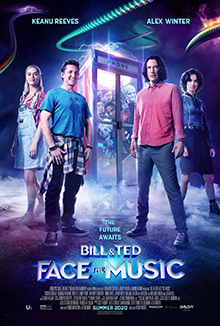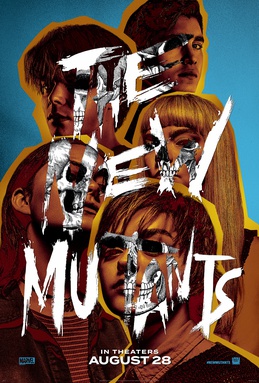
I also find myself in conflict with other fans of the franchise with my rankings of the individual films, often I’ve said the second one is my personal favourite which if you’re unfamiliar with the series, is a very unpopular opinion. Though this history is what made me go into the remake with optimism, as I was aware of the heavy criticism it faced and was hoping it might be another case of me finding more joy out of a Nightmare film than others did…Nope! (For anyone curious my ranking of the Nightmare films goes 2, 3, 1, 5, 7, 6, 4)
*Spoilers for the franchise*
From a conceptual standpoint I can understand and even agree with the premise of this being a reboot, as it has been 7 years since Freddy’s last appearance on the big screen and 16 years since the last canonical film in the franchise. Starting from scratch gives new audiences an entry point into the Nightmare without being bogged down by 7 films worth of continuity. So why on Earth was it decided that this should be a complete retread of the original film? The exact same structure and characters of the first film, identically replicating multiple scenes and plot points that I question how anyone got a writing credit when they simply copied Wes Craven’s original script.
If you are going in with a clean slate then commit to it, use this as an opportunity to do something original with a new cast of characters being haunted by Freddy, don’t retread ground of the original film because we’ve already seen it been done, calling reference to it by recreating it isn’t an homage, it’s blatant copying. The use of CGI is very prominent for this film as it was for many films of the time but it is particularly horrendous in horror films. Regardless of actual quality of the effects the audience is always consciously aware that what they’re seeing isn’t real and occupying the same space as the characters. Especially when you’re using CG to redo effects from the original that were done practically so we know they can be better than this. In horror films CGI is best used for the unnatural, things that can not be physically comprehended to the mind. Faces sticking out of walls can be comprehended because I saw them do that in the first fucking movie.
What few story points that are changed are done incredibly poorly. Freddy is a molester/child-killer who originally escaped incarceration on a technicality, the justice system failed the parents of the victims, so they took law into their own hands and murdered Freddy themselves. In this version not only do they 1: entertain the possibility that Freddy might have been innocent which is beyond idiotic because Freddy is the bad guy who murders children, he should not have any justification in his origin story. 2: Freddy was never even convicted, the parents never approached the police, they took matters into their own hands as Plan A, which all it does is make them look like a psychotic mob. The Elm Street Parents becoming a mob of vigilantes to seek justice is a mark that permanently damaged them. They were good people pushed to the absolute extremes to seek some semblance of justice or at least revenge. Whether or not their actions were right, it left a brand on them as people and it’s why they nor their children were ever truly able to escape Freddy, even if they pushed him from their conscious mind, he was always their haunting their minds. AKA the entire fucking subtext of the original has been trashed and instead let’s just make them blood-thirsty psychopaths!
There’s a visual language established in this film for the dreamworld that they break constantly for the sake of jump scares. Whenever the characters enter a dream like state the world shifts tone. The use of incandescent lighting and an ominous score establishes this otherworldly and uncomfortable atmosphere, and they stick with this for roughly 80% of the dream sequences, yet there are times when the world is perfectly normal, indicating to the audience that we are in the real world, then all of a sudden Freddy will show up to shout boo and then the characters will wake up making that scene utterly pointless and inconsistent with the rules established in the diegesis of the film.
It’s completely nonsensical for this version of Freddy to try and scare these characters because that’s not the Freddy presented to us. The filmmakers said they thought Freddy had become too much of a comedic character over the years and had lost the fearful side, which they’re not necessarily wrong with, but if you’re taking away that element then you have to restructure how he’s used as a character. The original Freddy was a showman, he would taunt and terrorise his prey with theatrics and would often kill them in some symbolic way that reflected their own flaws as people in some sick sense of karmic retribution. He took so much pleasure out of psychologically torturing his victims that’s what made him scary. This Freddy does none of that, he’s a wet blanket who doesn’t care to be theatrical, he’s also not funny except for the times where they still try and have him tell a joke except it’s not funny because he doesn’t say it with any charisma.
Why would you even want a Freddy that doesn’t see the entertainment value in all of this? In one of the prior films a character has a dream he’s riding a motorcycle as he slowly fuses with it to become a monstrous creature who then gets hit by a truck, it’s an incredibly inventive and visually impressive scene. This film has Freddy kill everyone by simply stabbing them to death. Why bother having the dream world anyway!? Why give him a world where he controls everything, where he can manipulate himself and the environment around him to kill teenagers in wildly inventive ways, if literally every character is just stabbed then what on Earth was the point of adapting this property in the first place if you’re not going to do anything interesting with the toolbox given and just turn him into any other boring serial killer!?
I genuinely didn’t expect to have such a vitriolic reaction to this film as I did, but then again if I go into a film expecting to dislike it then it’s often a soft blow. This was a film I was rooting for, I gave it a chance to prove others wrong and it let me down hard. I found myself mumbling “Oh fuck you” multiple times during this film and with each passing minute it was becoming more and more unlikely that it was going to change my mind. So I’d like to end this by giving a big congratulations to A Nightmare on Elm Street IV: The Dream Master for no longer being the worst Nightmare film.
-Danny



